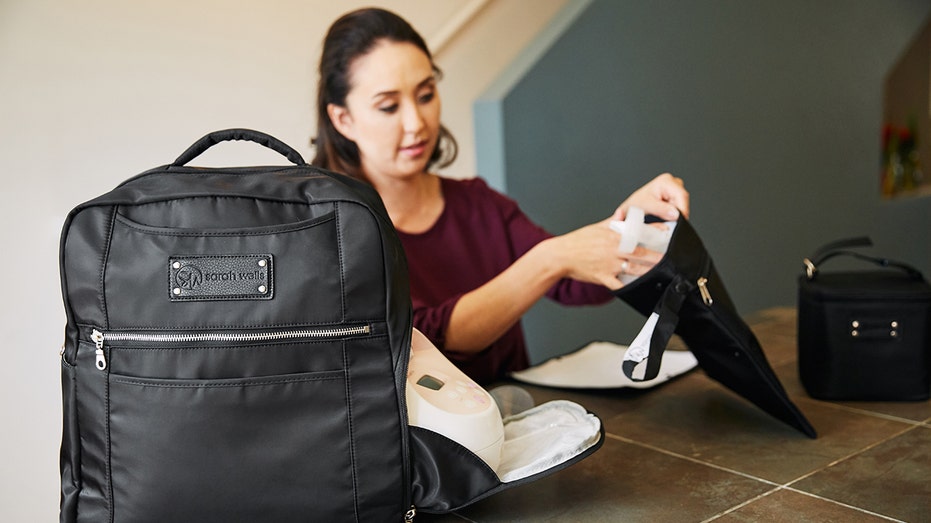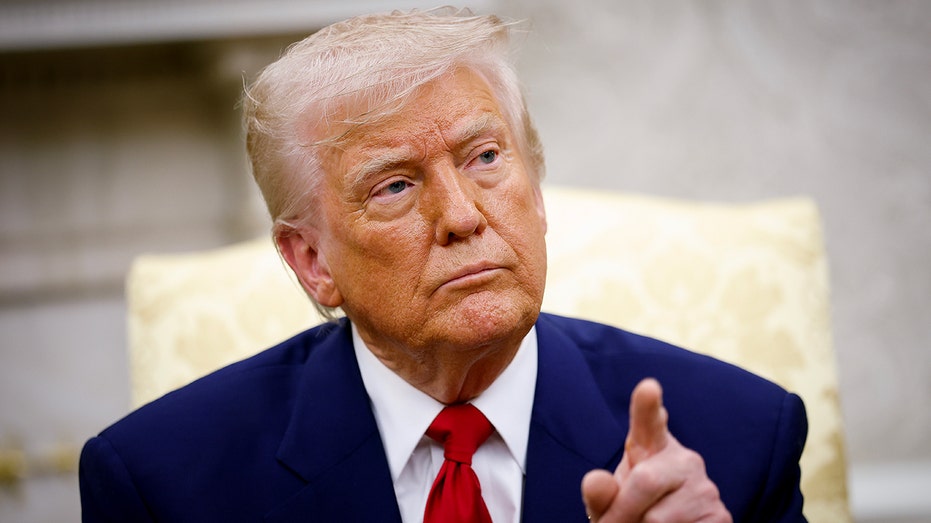Small business owners speak out about effects of Trump tariffs: 'Unsustainable'
US tariffs on China total 145%
Kudlow: Trump’s tariffs could be the path to economic prosperity
FOX Business host Larry Kudlow examines how President Donald Trump’s tariffs and trade policy could be used for more tax cuts on ‘Kudlow.’
Small business owners are worried about their chances of survival under President Donald Trump's tariff plan, which has sparked the start of a possible trade war and wiped out trillions in value from the stock market.
Despite a 90-day pause by the president, he increased tariffs against imports from China to 125%, bringing the total U.S. levies against Beijing to 145%, as a fentanyl emergency tariff from earlier this year remains in effect.
Sarah Wells, who started her small business in 2013 to create functional breast pump bags for moms and imports from China, is one of them. After more than a decade in business, she has paused innovation, raised prices and is now only reordering a fraction of the products she once did, as tariffs continue to weigh on her business.

A product by Sarah Wells Bags, which was started in 2013. (Sarah Wells Bags)
Until now, Wells said she has absorbed the higher costs because her customer base is new parents, but it has gotten to a point where it is "unsustainable."
Alfred Mai, the founder of San Francisco-based card game company ASM Games, said the skyrocketing costs of labor, materials and fulfillment in recent years ate into his companies' margins because he did not want to pass the costs onto consumers.
"It’s staggering and almost impossible to keep up with," he told FOX Business. "This is absolutely devastating for my business."
CHINA INCREASES TARIFFS ON US IMPORTS TO 125% FROM 84% AMID ONGOING TRADE WAR
Because small businesses have smaller profit margins, they are most vulnerable and will be the "first ones to cave under any sign of recession," according to Pinar Cebi Wilber, chief economist at the American Council for Capital Formation.
"As their size indicates, they do not have the same market power as their larger counterparts, so whenever their costs increase, it is harder for them to bargain with their suppliers. Ultimately, they will have to pass that cost to their customers," Wilber told FOX Business. "This decreases their competitiveness vis a vis the larger businesses."
Trump implemented a 10% base tariff on all imports last week and threatened additional reciprocal tariffs on U.S. trading partners, with some amounting to over 100%.

A game produced by California-based ASM Games. (Amazon)
The administration said the tariffs are part of "fair trade policies that will restore our workforce, rebuild our economy, and finally put America First."
Mai said Trump's recently announced tariffs, including his ongoing threats to U.S. trading partners, are the most "brutal tax hike on American small businesses and consumers" he has ever experienced.
"At least with normal taxes, you get notice — you can plan. This came out of nowhere, and small businesses like mine, with tight margins and tight cash flow, are going to get crushed," he said.
HOW MUCH DID TRADE WAR RELIEF COST DURING TRUMP'S FIRST TERM?
Wells, who manufactures and imports all of her products from China, is also a direct target. Despite years of searching, Wells said she has been unable to find any U.S.-based manufacturers capable of producing her products at scale.
"I have absolutely no loyalty to manufacturing in China. I would love to have my manufacturing in my own backyard here," Wells said, adding "I have never been able to find a handbag manufacturer that can produce the raw materials and do the final assembly at the mass production scale that I've been so lucky to succeed for with my business size."
Even if she moved manufacturing to the U.S., Wells said she would still need to import materials from 14 other foreign manufacturers to produce a single backpack design.

A woman holds products made by Sarah Wells Bags. (Sarah Wells Bags)
According to Wilber, most small businesses "function under just-in-time inventory," meaning that they get materials when they need to produce.
"These types of tariffs not only make their costs rise but also make it harder to plan and to keep a reliable supply chain, especially when they depend on foreign producers," Wilber said. "Again, they can manage with that small profit margin because many of them rely on cheaper foreign supplies. When you remove that advantage via tariffs, that will be a big problem for their viability."
GET FOX BUSINESS ON THE GO BY CLICKING HERE
For a small business that is working with multiple suppliers, each of which is hit with tariffs, there will be a cost increase at every stage, making it impossible for the business to "to internalize all that cost without getting into the red," Wilber said.

President Donald Trump takes a question from a member of the media in the Oval Office of the White House in Washington, D.C., on Monday. (Kevin Dietsch/Getty Images / Getty Images)
Wells has had to significantly cut down on her inventory. Of the 115 items she carries, she is only reordering about 10 of her core products. Meanwhile, Mai is seeking external capital just to pay for the inventory that is about to arrive in the next few months.
"That’s money I should be using to invest in the business — build new products, hire, grow. Instead, I have to keep it all tied up for tariff payments," Mai said.
"In this environment, nobody knows what will happen day to day."





















